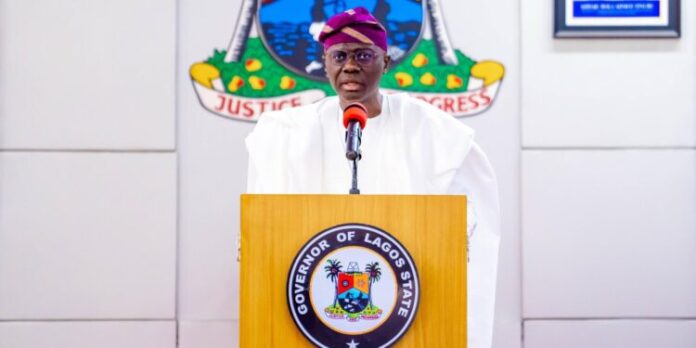Lagos has projected annual export earnings of N387.5 billion from the newly inaugurated Industrial Leather Hub once it becomes fully operational, Gov. Babajide Sanwo-Olu has said.
The governor made the disclosure at the weekend during the commissioning of the facility in Matori, Mushin, adding that the hub would position Lagos as the leather logistics capital of West Africa.
He described the project as a crucial step in Nigeria’s efforts to diversify the economy beyond oil.
Sanwo-Olu stated that the annual export earnings exceeding $250 million (₦387.5 billion) are projected when the Lagos Industrial Leather Hub becomes fully operational.
He said that the hub is expected to create more than 10,000 jobs within three years, with 70% reserved for women and youth. He added that over 150,000 artisans would have access to advanced training and start-up support to strengthen competitiveness across the leather value chain.
The Lagos State governor credited Nigeria’s First Lady, Sen. Oluremi Tinubu, for inspiring the initiative through her focus on women and youth empowerment, while also acknowledging the Council for Leather Exports and private investors for backing Lagos as Africa’s next leather frontier.
The governor pledged continued state support to safeguard and expand the hub through transparent regulation and infrastructure upgrades.
He said the facility would be integrated with fashion districts, e-commerce platforms, and the Lagos Blue Line Rail to enhance logistics for goods and people.
Sanwo-Olu added that the hub would drive innovation, attract investments, and raise the living standards of Lagosians, stressing that its true success would be measured by the number of households lifted above poverty.
Nigeria’s once-thriving leather industry collapsed largely due to inadequate infrastructure, forcing many producers out of business and leaving the country unable to compete with global players like China, Brazil, and India.
Prof. Mohammed Yakubu, Director-General of the Nigerian Institute of Leather and Science Technology (NILEST) and Chairman of the National Leather Policy Implementation Committee, said affordable power and modern processing facilities remain critical to reviving the sector.
In November 2024, Yakubu announced that NILEST would establish mini tanneries in every state to process hides and skins into finished leather.
According to him, each tannery cluster would handle between one to five tonnes of leather weekly, helping to reduce excessive domestic consumption and redirect surplus production to major markets in the South-West, South-East, Jos, and Kano. However, as of August 2025, there has been no official update on whether these mini tanneries have actually been established.
Tanneries are facilities where animal hides and skins are processed into leather through chemical and mechanical treatments. They form the backbone of the leather industry, as the quality of tanning determines the durability, texture, and market value of finished leather products.
The inauguration of the Lagos Industrial Leather Hub aligns with this vision, providing advanced infrastructure, training, and logistics support.

